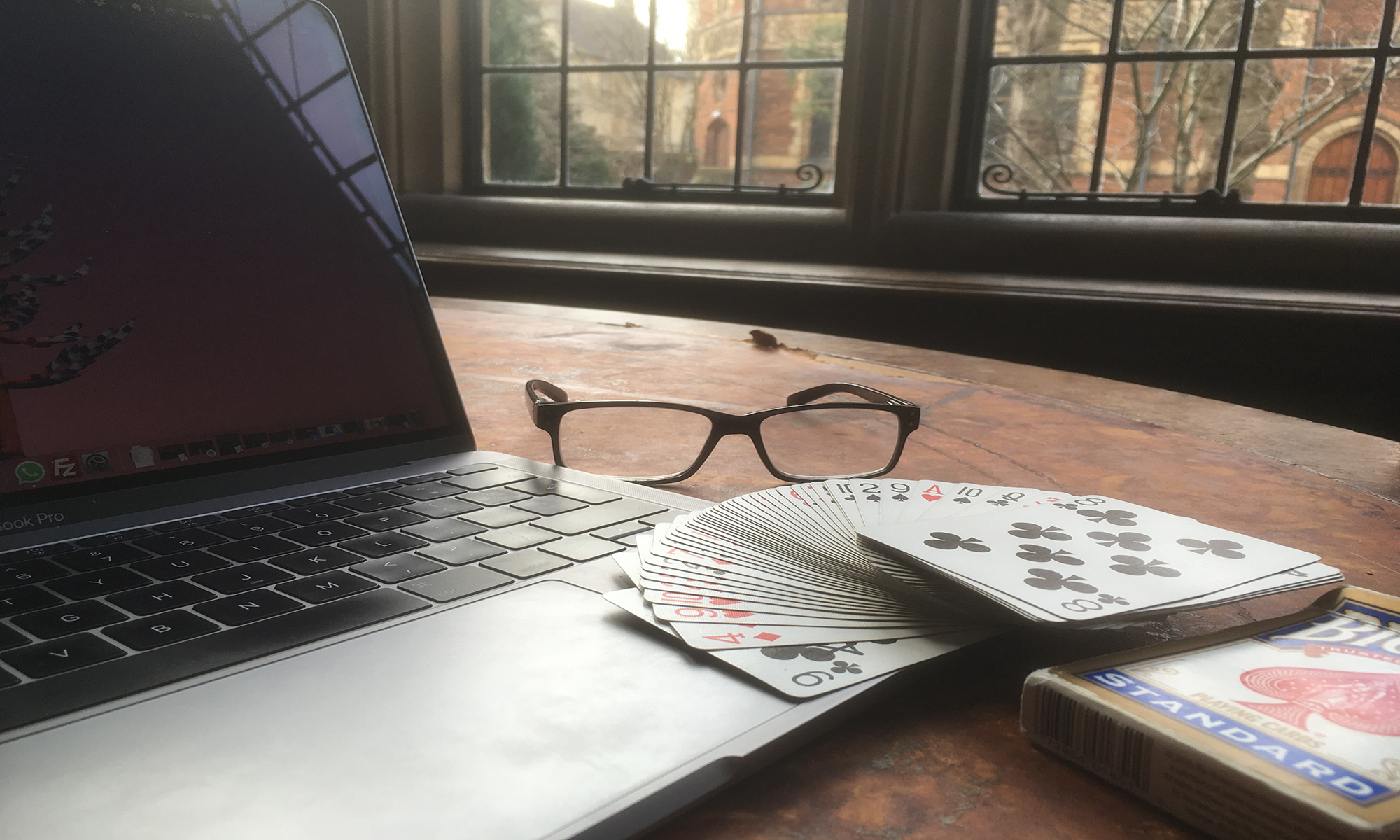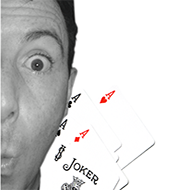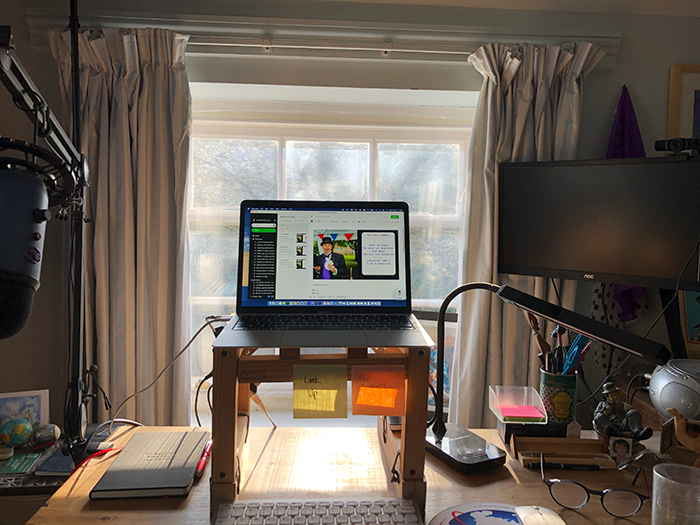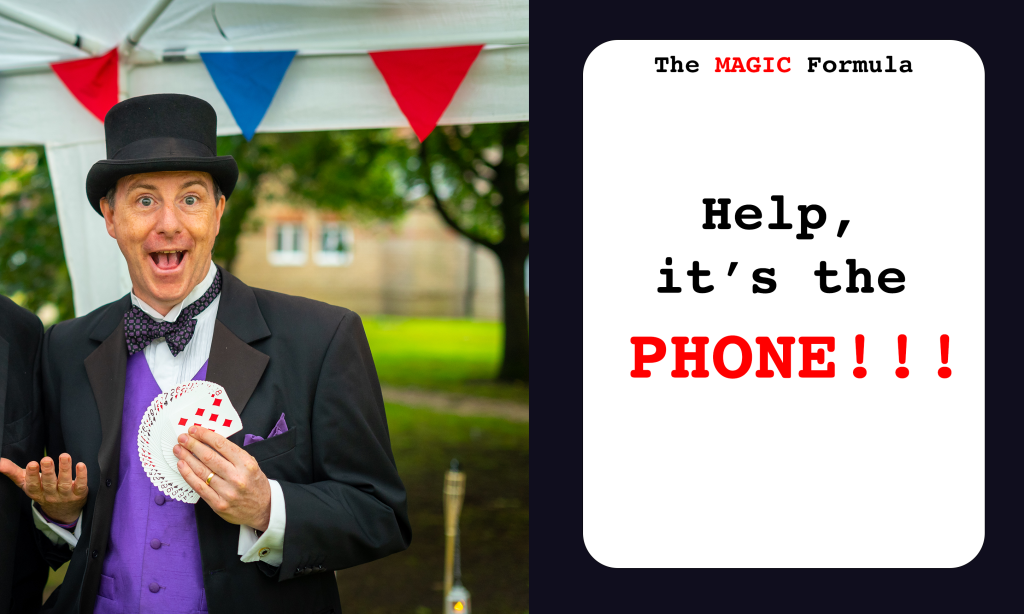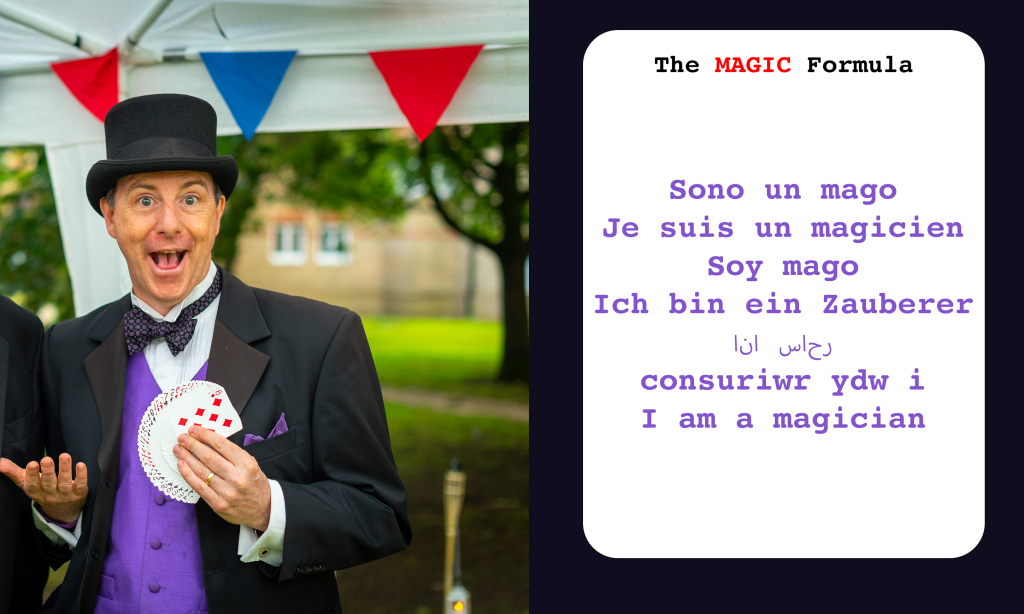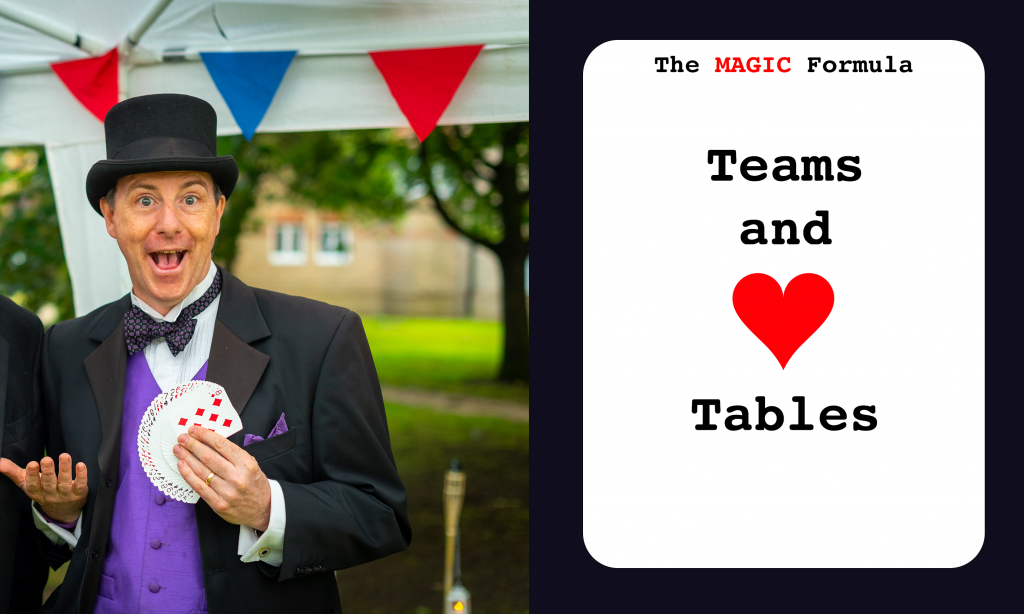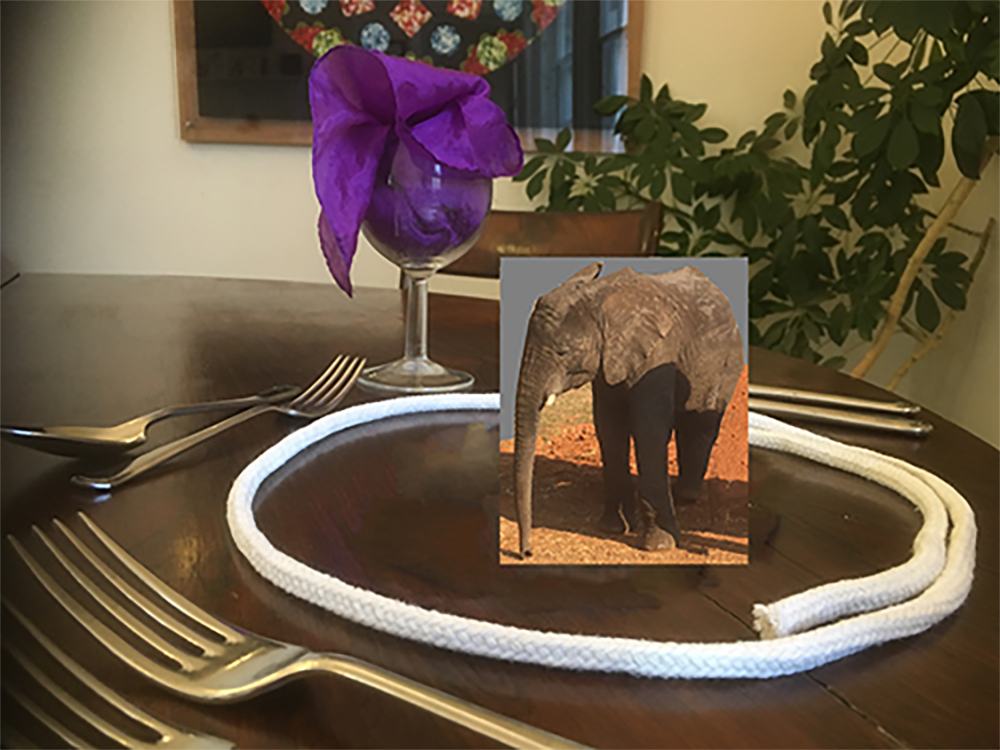
The MAGIC formula:
Move
Attune
Give
Inspire
Connect
How does The MAGIC Formula apply to achieving goals, ticking off tasks or progressing projects? Think about something you want to achieve and consider these questions and thoughts about your desired destination:
Move
Why is it important to you? Does it stir your emotions?
Attune
Get clear on the goal.
Break it into steps.
Work out when you work best and where you can fit it in.
Give
As you achieve the goal little by little, be kind to yourself. Celebrate little wins and bitesize bits of progress along the way.
Inspire
Picture yourself having achieved it. What will you see? What will you feel? What will you hear from others?
Connect
This is linked to “Move”. If your goal, task or project stirs you, you will feel connected to it. This will act as motivation as you progress.
One bite at a time…
As a magician, I must practise, practise, practise before presenting my seemingly impossible effects to the waiting world. The method becomes invisible as I develop muscle memory to perform secret moves without apparent thought or effort.
When I start performing to lay people, the practice continues. In fact, many argue that this is when the learning really begins; only when I perform can I see how a trick will be received, how particular lines of patter will or will not land and how the rhythmic timing of a routine works best.
But how to practise? I have never been a big fan of extended practice sessions. I much prefer the “little and often” approach. I have packs of cards all over the house, in my car and in every jacket and bag I carry. In a spare couple of minutes, I can whip out a pack and work on my new moves. Muscle memory builds up much better this way: short, intensive training, having a break, and returning to it later. I have heard dancers say the same sort of thing.
This “little and often” principle can be extended effectively to many areas of life.
Doing the Impossible
How often do you get demoralised about a goal because it looks too large, too daunting, or plainly unachievable? You say to yourself, “I could never complete that task; it would take too much time and energy,” or look at someone successful and think, “I could never achieve what that person has achieved.”
Well, try breaking it up into little steps. When asked, “How do you eat an elephant?” the answer is, “One bite at a time!”
First, picture yourself having achieved the goal or completed the project. How does it feel? Great, I bet. Ask yourself whether there is any real reason that you shouldn’t get there. What is the real difference between you and someone who has already achieved it? Probably just determination, consistency and possibly a bit of learning. When I see another magician do a stunning shuffle or flourish with cards, I am tempted to think, “I could never do that!” However, I know – because I have forced myself – that given enough “little-and-often” practice, I can actually do it. Now people look at me and say, “I could never do that!”
Get your goal in mind. Then identify what has to change and what you must do to get there. Break it down into sub-goals along the way. And then, break the sub-goals down further and further until you have a practical step you could easily take today.
Then you will achieve the impossible. Just like a magician learning a trick.
—
Help Please – The MAGIC of Connections!
If you know anyone who works for a company who would value an entertaining speaker with practical business content, I would love it if you could connect us.
Ideal for the after lunch slot 🙂
Videos of me speaking are here:
